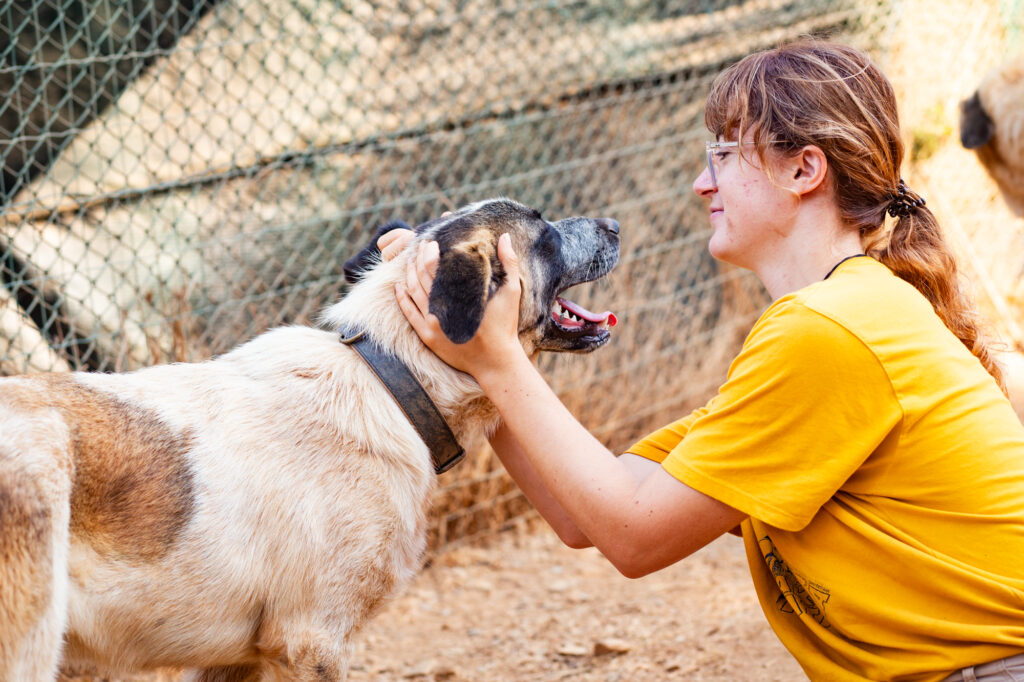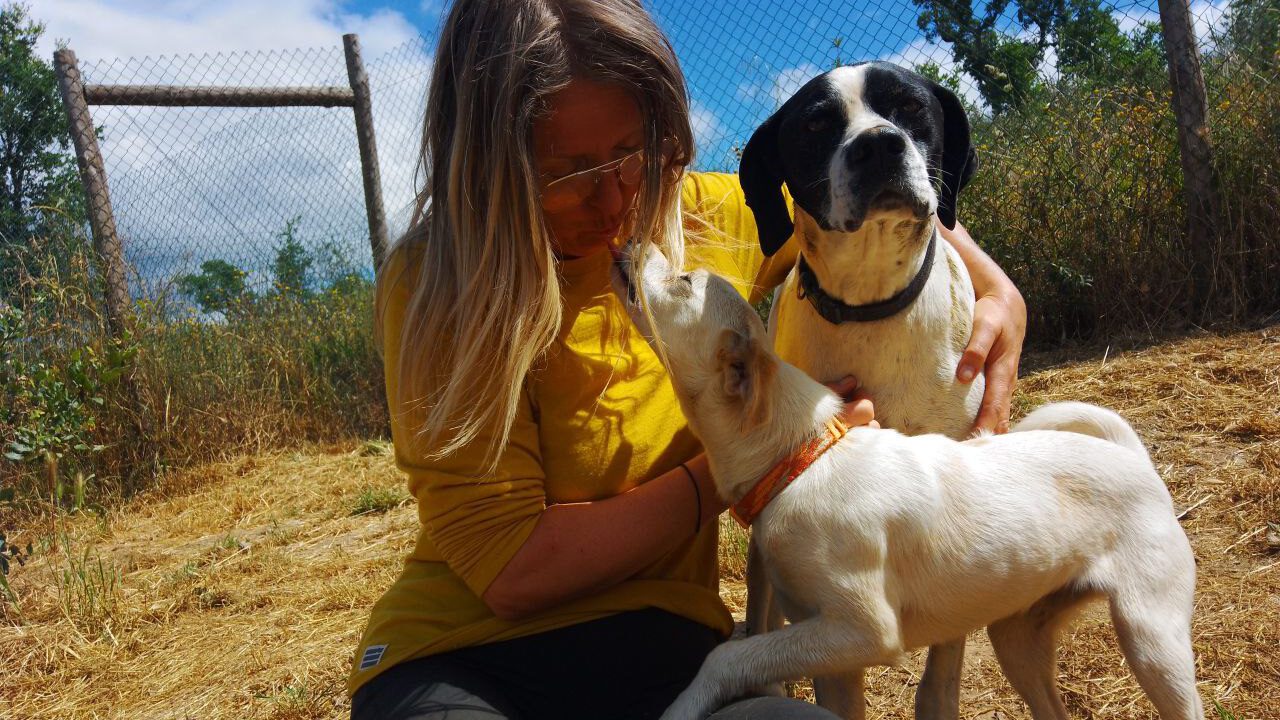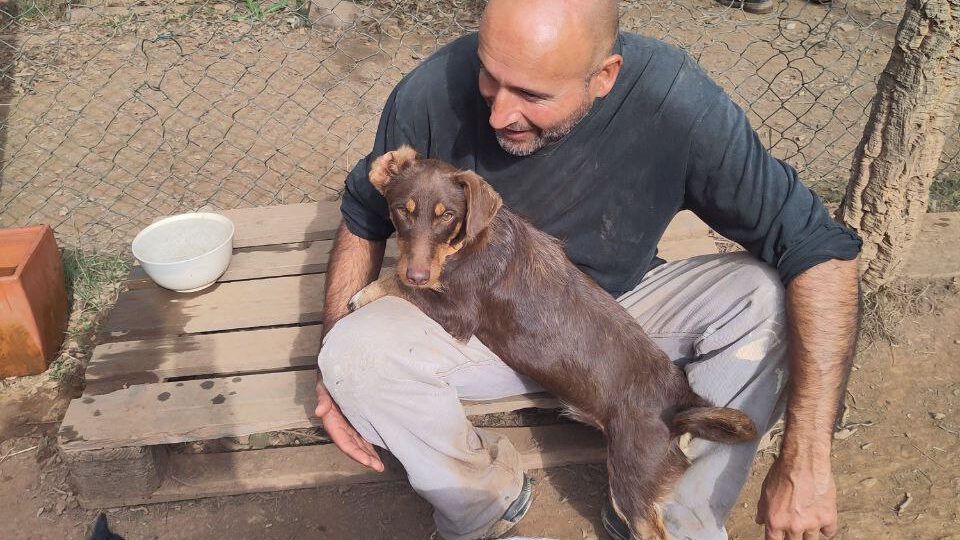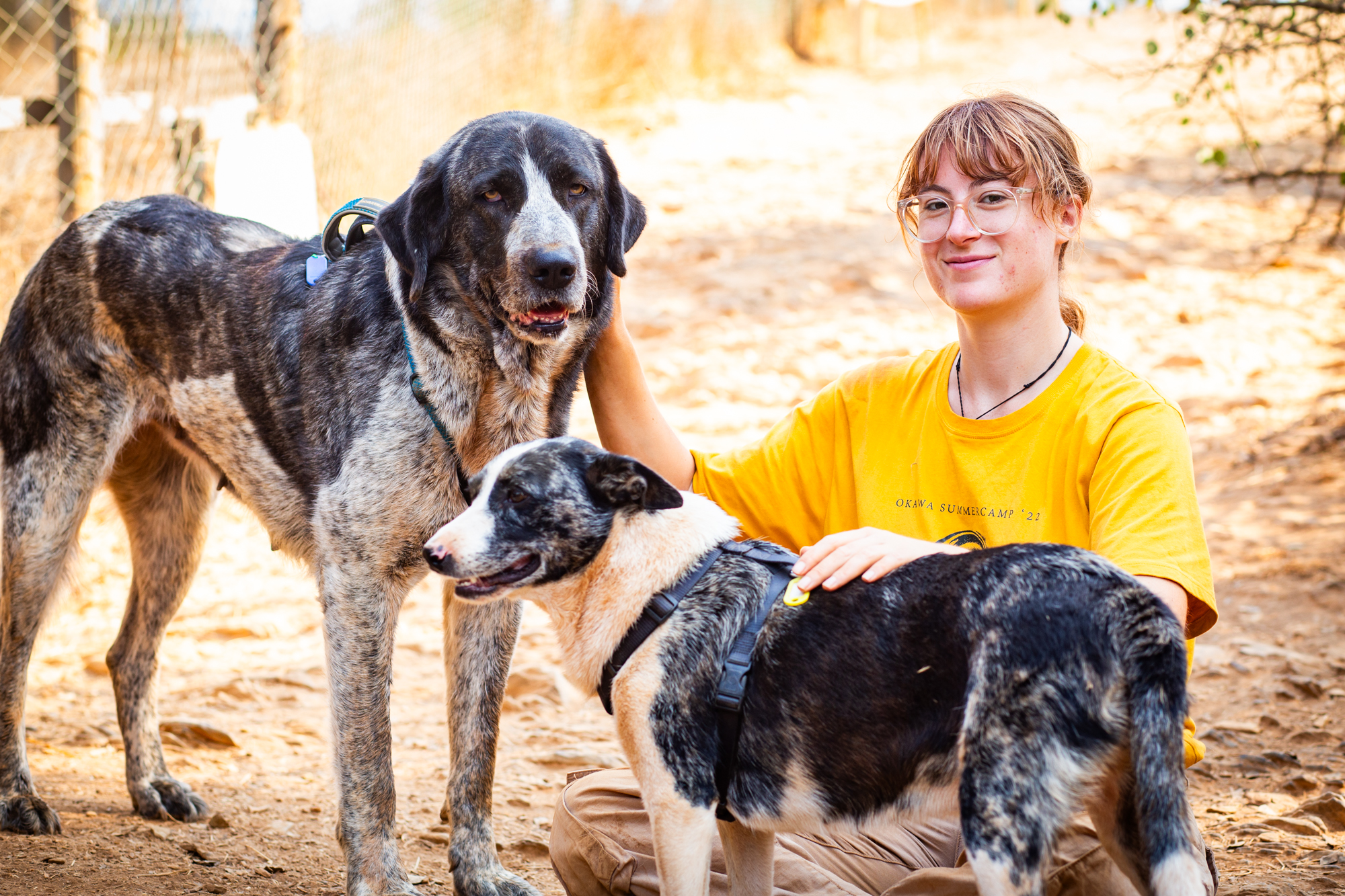Discovering the Healing Power of Oxytocin

In 2015, a groundbreaking study published in Science uncovered a discovery about the healing connection between humans and dogs: the release of oxytocin, a hormone central to emotional and physical wellbeing, occurs in both species during positive interactions: When humans and dogs gaze into each other’s eyes, their oxytocin levels increase significantly, creating a loop of trust, affection, and mutual healing. Follow-up studies have reinforced these findings, showing that this unique interspecies bond delivers measurable physical and mental health benefits for both humans and dogs.

This oxytocin-driven connection is a powerful force for healing. It explains why people often feel calmer, happier, and more grounded in the presence of dogs and why dogs, especially those recovering from trauma, thrive in the care of loving humans.
Higher levels of oxytocin in humans have been linked to a wide range of health benefits, both physical and emotional. One of its most notable effects is on the cardiovascular system. Oxytocin helps to lower blood pressure by relaxing blood vessels and reducing the activity of the stress-related hormone cortisol. Lower blood pressure is a key factor in reducing the risk of heart disease, strokes, and other cardiovascular events. For individuals at risk of hypertension, regular contact with dogs and the resulting oxytocin boost can serve as a natural, drug-free way to support heart health.

The impact of oxytocin on cortisol levels is equally profound. Cortisol, often referred to as the „stress hormone“ contributes to issues as chronic stress, weight gain, weakened immune function, chronic inflammation and risk of cancer. By reducing cortisol levels, oxytocin helps to create a more balanced hormonal environment, reduces inflammation. This hormonal balance supports better metabolic health and can lower the risk of developing conditions like diabetes and obesity. And it comes to no surprise that oxytocin improves wound healing as well. You can even buy oxytocin supplements, which supposedly make you live longer!
Exercise is another factor that ties into the health benefits of oxytocin. Dog owners and volunteers at shelters naturally have more physical activity through regular walks, play sessions, and other forms of interaction. This increased activity not only supports weight management and cardiovascular health but also helps in reducing inflammation, a key factor in preventing chronic diseases, including some types of cancer.
Watch this video to learn more about the healing bond between humans and dogs.
Beyond physical health, the emotional benefits of oxytocin are transformative. Known for its role in creating trust and bonding, oxytocin improves emotional resilience and mental health. It helps combat anxiety and depression by creating feelings of calm, connection, and safety. People with higher oxytocin levels are often better equipped to manage social interactions and maintain healthy relationships.

In a world where chronic stress, isolation, and lifestyle-related illnesses are on the rise, the human-dog connection stands out as a powerful antidote. The release of oxytocin fosters not only individual healing but also a deeper awareness of our interconnectedness with all living beings. This heightened consciousness and mutual care not only promote better health but also encourage greater compassion, understanding, and peace in an increasingly divided world.
Watch this video about the healing bond between a veteran with PTSD and his dog.

